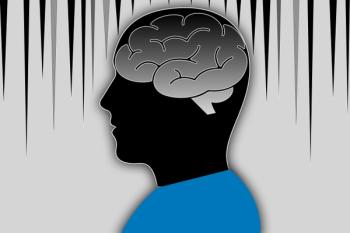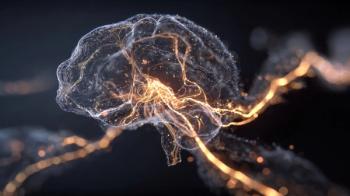
- Vol 38, Issue 2
- Volume 02
Neuropsychiatric Symptoms of Multiple Sclerosis
Earn CME Credit by learning more about multiple sclerosis and how it affects patients.
CATEGORY 1 CME
Premiere Date: February 20, 2021
Expiration Date: August 20, 2022
This activity offers CE credits for:
1. Physicians (CME)
2. Other
All other clinicians either will receive a CME Attendance Certificate or may choose any of the types of CE credit being offered.
ACTIVITY GOAL
The goal of this activity is to learn about the neuropsychiatric symptoms of multiple sclerosis (MS) and to recognize them in patients.
LEARNING OBJECTIVES
1. Appreciate the basic epidemiology of MS
2. Understand the prevalence of comorbid neuropsychiatric disorders and MS
3. Track the complex relationship between MS and the various psychiatric disorders and symptomology
4. Consider treatment strategies for patients with MS who present with neuropsychiatric disorders
TARGET AUDIENCE
This continuing medical education (CME) activity is intended for psychiatrists, psychologists, primary care physicians, physician assistants, nurse practitioners, and other health care professionals who seek to improve their care for patients with mental health disorders.
ACCREDITATION/CREDIT DESIGNATION/FINANCIAL SUPPORT
This activity has been planned and implemented in accordance with the accreditation requirements and policies of the Accreditation Council for Continuing Medical Education (ACCME) through the joint providership
Physicians’ Education Resource®, LLC designates this enduring material for a maximum of 1.5 AMA PRA Category 1 Credits™. Physicians should claim only the credit commensurate with the extent of their participation in the activity.
This activity is funded entirely by
OFF-LABEL DISCLOSURE/DISCLAIMER
This CME activity may or may not discuss investigational, unapproved, or off-label use of drugs. Participants are advised to consult prescribing information for any products discussed. The information provided in this CME activity is for continuing medical education purposes only and is not meant to substitute for the independent clinical judgment of a physician relative to diagnostic or treatment options for a specific patient’s medical condition.
The opinions expressed in the content are solely those of the individual faculty members and do not reflect those of Physicians’ Education Resource®, LLC.
FACULTY, STAFF, AND PLANNERS’ DISCLOSURES
The authors have no conflicts of interests to declare and the staff members of Physicians’ Education Resource®, LLC and Psychiatric TimesTM have no relevant financial relationships with commercial interests.
For content-related questions, email us at
HOW TO CLAIM CREDIT
Once you have read the article, please use the following URL to evaluate and request credit
Multiple sclerosis (MS) is the
The prevalence of MS appears to be increasing and is now considered a truly global problem.3 The prevalence of MS is highest in North America, Western Europe, and Australasia (> 100 cases per 100,000 population), whereas it is the lowest in eastern sub-Saharan Africa, central sub-Saharan African, and Oceania (< 4 cases per 100,000 population). It is
There are
There are
The pathological hallmarks of MS are inflammation with demyelination and astroglial proliferation (gliosis) and neurodegeneration. The damage to tissues is restricted to the CNS, whereas the peripheral nervous system is
The clinical features of MS depend on the location of the demyelinating lesions in the CNS. In approximately 85% of the cases, the onset of the illness is characterized by an initial clinical attack, which consists of demyelinating lesions in the optic nerve, spinal cord, brainstem, or the cerebellum. This results in acute unilateral optic neuritis, a partial myelitis, or a brainstem syndrome.6,7 The initial attack may be followed by additional clinical episodes known as relapses. These attacks may have acute or subacute onset over hours to days, with maximal deficits within 4 weeks of onset and spontaneous remission.
Neuropsychiatric Symptoms
Available
Although there may be overlap, neuropsychiatric symptoms of MS can be divided into 2 broad categories: those associated with cognition and those associated with mood, affect, and behavior.2 In 1 study, depressive symptoms were the most common neuropsychiatric symptom seen among individuals with MS (
Major Depressive Disorder
Major depressive disorder (MDD) is the
The relationship between MDD and MS remains a very
Biological factors that contribute to the development of MDD among individuals with MS include lesions in the left arcuate fasciculus, prefrontal cortex, anterior temporal lobe, and parietal lobe.13 Additionally, atrophy in the frontal, parietal, and occipital lobes is associated with the development of depression among individuals with MS. Neuroendocrine factors like hypothalamus-pituitary-adrenal axis dysfunction has been noted among individuals with MS who have MDD. These individuals have non-suppression of cortisol when administered the dexamethasone suppression test, and this finding is correlated with greater number of lesions in the brain.15 The use or sudden discontinuation of corticosteroids, baclofen, dantrolene, and tizanidine among individuals with MS
Suicidal ideation is not uncommon among individuals with MS. One study showed that the lifetime prevalence of suicidal intent was 28.6% in individuals with MS, and 6.4% of individuals with MS had attempted suicide.17 In this study, suicide intent was strongly associated with major depression, alcohol abuse, and social isolation.
Available evidence indicates that MDD in MS is often poorly diagnosed and treated, with as many as two-thirds of patients not receiving appropriate depression treatment.9 Screening tools such as the Beck Depression Inventory, the Beck Fast Screen for Depression in Medically Ill Patients, and the Hospital Anxiety and Depression Scale have been successfully used for screening in this patient population. Although there are only a limited number of controlled studies, available
The good news is appropriate treatment can be helpful for these patients. In a meta-analysis, Fiest et al found 21 articles that reported data on 13 unique clinical trials for the treatment of depression in MS.19 The investigators found that depression severity improved in 9 psychological and 3 pharmacological trials of treatments for depression.
Bipolar Disorder
The prevalence of bipolar disorder among individuals with MS is 0.3%.20 When compared with controls, individuals with MS had greater lifetime prevalence of bipolar I disorder (P = .05), bipolar 2 disorder (P <.0001), and cyclothymia (P =.0001).21 Manic symptoms can either precede the occurrence of neurological symptoms of MS or may occur during the exacerbation of MS symptoms.15 One-third of individuals with MS experience drug-induced mania, which tends to occur early in treatment and is dose dependent.9 Manic symptoms also occur more commonly among individuals with a family history of bipolar disorder. Additionally, manic symptoms may be seen among individuals with greater volume of brain lesions, especially in the bilateral temporal horn.22
Lithium has been found to be effective in the treatment of manic symptoms among individuals with MS. For drug-induced manic symptoms, lithium, olanzapine, and phenytoin are effective treatments.9 Symptom control can be achieved without reduction in doses of the offending drug.
Anxiety Disorders
Available evidence indicates the prevalence rate for anxiety disorders among individuals with MS is approximately 36% (
There are no RCTs that have evaluated pharmacotherapy for anxiety disorders among individuals with MS, but available evidence indicates efficacy for SSRIs, SNRIs, pregabalin, gabapentin, and beta-blockers.9 The use of benzodiazepines should be restricted to cases of anxiety that are acute and severe, and the prescription should be only be given for a short duration of treatment. Nonpharmacological management strategies that are beneficial in cases of anxiety disorders in MS include stress management and cognitive behavioral therapy.
Psychotic Disorders
In this review, most of the individuals received some type of antipsychotic medication, with variable success. About a quarter of these individuals were treated with corticosteroids in the acute phase of their psychotic symptoms, and the majority responded favorably. In the 60% of individuals with imaging data, predominantly frontotemporal lesions were noted; most had contrast enhancing lesions. Data available from these case reports indicate that hallucinations and delusions (mostly paranoid) were the most common symptom, followed by irritability/agitation, sleep disturbance, grandiosity, and several others (
Psychotic symptoms are thought to occur in individuals with MS via 3 mechanisms: through a shared common pathophysiological process with the MS; due to the regional demyelination that occurs in synchrony with the course of MS; and as a side effect or as an exacerbation of the effect of the medications used to treat MS.
Available evidence indicates efficacy for low-dose atypical antipsychotic agents, including risperidone, ziprasidone, clozapine, aripiprazole, quetiapine, and olanzapine.9 Clozapine is often prescribed for treatment-resistant psychosis due to the risk for agranulocytosis. Prophylactic use of lithium along with corticosteroids and low doses of chlorpromazine have also shown benefit in the treatment of psychotic symptoms in MS.13
Substance Use Disorders
Unfortunately, the use of cannabis is associated with a number of adverse effects, including worsening cognitive functioning, worsening depressive symptoms, and/or psychosis.9 It is important to routinely screen for alcohol and/or psychoactive substance misuse among individuals with MS and, if present, refer these individuals for appropriate treatments.15
Cognitive Disorders
There is a possible association noted between cognitive dysfunction and fatigue.29 Fatigue often impairs cognitive performance among individuals with MS, and cognitive dysfunction may increase fatigue levels. Fatigue and cognitive dysfunction appear to share a common pathophysiological substrate involving common frontal-subcortical pathways. It has been noted that the total lesion burden and regional lesion volume correlate with the extent of cognitive dysfunction.30 Ventricular enlargement that is correlated with cerebral atrophy is also associated with impaired cognitive functioning, especially in attention, verbal memory, and verbal fluency.
The most sensitive means to detect cognitive dysfunction among individuals with MS is neuropsychological testing. Unfortunately, the testing is time consuming, expensive, and not readily available. In such situations, brief screening instruments, such as the Minimal Assessment of Cognitive Function in MS, may be used to detect and monitor for the progression of cognitive impairment. Disease-modifying drugs, including beta-interferons and glatiramer acetate, may prevent or reduce the progression of cognitive dysfunction by containing the development of new cerebral lesions.31 However, clinical trials have provided inconsistent results, with neuropsychological effects documented only in 1 trial.
Pilot studies have tested symptomatic therapies for fatigue, which may share a common pathophysiological substrate with cognitive dysfunction. Small trials of amantadine, pemoline, 4-aminopyridine, and 3-4 aminopyridine have provided mainly negative results.31 Acetylcholinesterase inhibitors (AchEIs) used to treat Alzheimer disease—such as donepezil, rivastigmine, and galantamine—have recently been explored for individuals with MS, with the majority of pilot trials showing promising results.32 However, nonpharmacological interventions based on cognitive rehabilitation in general have provided limited results.33
Pseudobulbar Affect
PBA, also known as pathological laughing and crying, emotional incontinence, pathological emotionalism, or involuntary emotional expression disorder, is considered a disconnection syndrome that results in the loss of cortical or
The
Concluding Thoughts
Neuropsychiatric symptoms are not uncommon among individuals with MS. Although these symptoms may occur prior to the onset of MS symptoms, they commonly occur during the course of the illness. It is still unclear if the occurrence of neuropsychiatric symptoms indicates the level of severity of the underlying illness. However, the presence of these symptoms worsens MS outcomes. The management of the
Dr Tampi is chairman, Department of Psychiatry & Behavioral Sciences, Cleveland Clinic Akron General, Akron, Ohio; chief, Section for Geriatric Psychiatry, Cleveland Clinic, Cleveland, Ohio; and professor of medicine, Cleveland Clinic Lerner College of Medicine, Case Western Reserve University, Cleveland, Ohio. Ms Tampi is co-founder and managing principal, Behavioral Health Advisory Group, Princeton, New Jersey. Dr Pittinger is psychiatry clerkship site director, Cleveland Clinic Akron General, Akron, Ohio; clinical experiential director, Psychiatry Clerkship, Northeast Ohio Medical University, Rootstown, Ohio; clinical associate professor of psychiatry, Northeast Ohio Medical University, Rootstown, Ohio.
References
1. Reich DS, Lucchinetti CF, Calabresi PA. Multiple sclerosis. N Engl J Med. 2018;378(2):169-180.
2. Paparrigopoulos T, Ferentinos P, Kouzoupis A, et al. The neuropsychiatry of multiple sclerosis: focus on disorders of mood, affect and behavior. Int Rev Psychiatry. 2010;22(1):14-21.
3. GBD 2016 Multiple Sclerosis Collaborators. Global, regional, and national burden of multiple sclerosis 1990-2016: a systematic analysis for the Global Burden of Disease Study 2016. Lancet Neurol. 2019;18(3):269-285.
4. Goldenberg MM.
5. Hauser SL, Cree BAC.
6. Filippi M, Bar-Or A, Piehl F, et al. Multiple sclerosis. Nat Rev Dis Primers. 2018;4(1):43. Published correction appears in Nat Rev Dis Primers. 2018;4(1):49.
7. Brownlee WJ, Hardy TA, Fazekas F, Miller DH. Diagnosis of multiple sclerosis: progress and challenges. Lancet. 2017;389(10076):1336-1346.
8. Marrie RA, Horwitz R, Cutter G, et al
9. Murphy R, O’Donoghue S, Counihan T, et al.
10. Lo Fermo S, Barone R, Patti F, et al. Outcome of psychiatric symptoms presenting at onset of multiple sclerosis: a retrospective study. Mult Scler. 2010;16(6):742-748.
11. Asghar-Ali AA, Taber KH, Hurley RA, Hayman LA. Pure neuropsychiatric presentation of multiple sclerosis. Am J Psychiatry. 2004;161(2):226-231.
12. Diaz-Olavarrieta C, Cummings JL, Velazquez J, Garcia de la Cadena C. Neuropsychiatric manifestations of multiple sclerosis. J Neuropsychiatry Clin Neurosci. 1999;11(1):51-57.
13. Silveira C, Guedes R, Maia D, et al. Neuropsychiatric symptoms of multiple sclerosis: state of the art. Psychiatry Investig. 2019;16(12):877-888.
14. Feinstein A.
15. Chwastiak LA, Ehde DM. Psychiatric issues in multiple sclerosis. Psychiatr Clin North Am. 2007;30(4):803-817.
16. Mohr DC, Goodkin DE, Gatto N, Van der Wende J. Depression, coping and level of neurological impairment in multiple sclerosis. Mult Scler. 1997;3(4):254-258.
17. Feinstein A. An examination of suicidal intent in patients with multiple sclerosis. Neurology. 2002;59(5):674-678.
18. Carta MG, Paribello P, Anastasia A, et al.
19. Fiest KM, Walker JR, Bernstein CN, et al. Systematic review and meta-analysis of interventions for depression and anxiety in persons with multiple sclerosis. Mult Scler Relat Disord. 2016;5:12-26.
20. Edwards LJ, Constantinescu CS. A prospective study of conditions associated with multiple sclerosis in a cohort of 658 consecutive outpatients attending a multiple sclerosis clinic. Mult Scler. 2004;10(5):575-581.
21. Carta MG, Moro MF, Lorefice L, et al. The risk of bipolar disorders in multiple sclerosis. J Affect Disord. 2014;155:255-260.
22. Jefferies K. The neuropsychiatry of multiple sclerosis. Adv Psychiatr Treat. 2006;12(3):214-220.
23. Korostil M, Feinstein A. Anxiety disorders and their clinical correlates in multiple sclerosis patients. Mult Scler. 2007;13(1):67-72.
24. Kosmidis MH, Giannakou M, Messinis L, Papathanasopoulos P. Psychotic features associated with multiple sclerosis. Int Rev Psychiatry. 2010;22(1):55-66.
25. Camara-Lemarroy CR, Ibarra-Yruegas BE, Rodriguez-Gutierrez R, et al. The varieties of psychosis in multiple sclerosis: a systematic review of cases. Mult Scler Relat Disord. 2017;12:9-14.
26. Choy W, Gerstein DR, Ghadialy R, et al. National household survey on drug abuse: main findings, 1992. Substance Abuse and Mental Health Services Administration. April 1995. Accessed December 8, 2020.
27. Bombardier CH, Blake KD, Ehde DM, et al. Alcohol and drug abuse among persons with multiple sclerosis. Mult Scler. 2004;10(1):35-40.
28. Chong MS, Wolff K, Wise K, et al. Cannabis use in patients with multiple sclerosis. Mult Scler. 2006;12(5):646-651.
29. Amato MP, Zipoli V, Portaccio E.
30. Ghaffar O, Feinstein A. The neuropsychiatry of multiple sclerosis: a review of recent developments. Curr Opin Psychiatry. 2007;20(3):278-285.
31. Amato MP, Portaccio E, Zipoli V. Are there protective treatments for cognitive decline in MS? J Neurol Sci. 2006;245(1-2):183-186.
32. Patti F. Treatment of cognitive impairment in patients with multiple sclerosis. Expert Opin Investig Drugs. 2012;21(11):1679-1699.
33. O’Brien AR, Chiaravalloti N, Goverover Y, Deluca J. Evidenced-based cognitive rehabilitation for persons with multiple sclerosis: a review of the literature. Arch Phys Med Rehabil. 2008;89(4):761-769.
34. Miller A.
Articles in this issue
almost 5 years ago
The Cardiovascular Consequences of Drug Usealmost 5 years ago
Positivism and Heart Health: Issues for Psychiatristsalmost 5 years ago
Understanding the QTcalmost 5 years ago
A Psychiatrist Weaving Conceptual and Empirical Workalmost 5 years ago
Ink Stained for Lifealmost 5 years ago
Spike in Health Care Cyber Attacksalmost 5 years ago
Pain and Smoking: Is There an Association?almost 5 years ago
The Onealmost 5 years ago
Underused Medication May Be Best Bet for Comorbid AUD and DepressionNewsletter
Receive trusted psychiatric news, expert analysis, and clinical insights — subscribe today to support your practice and your patients.







